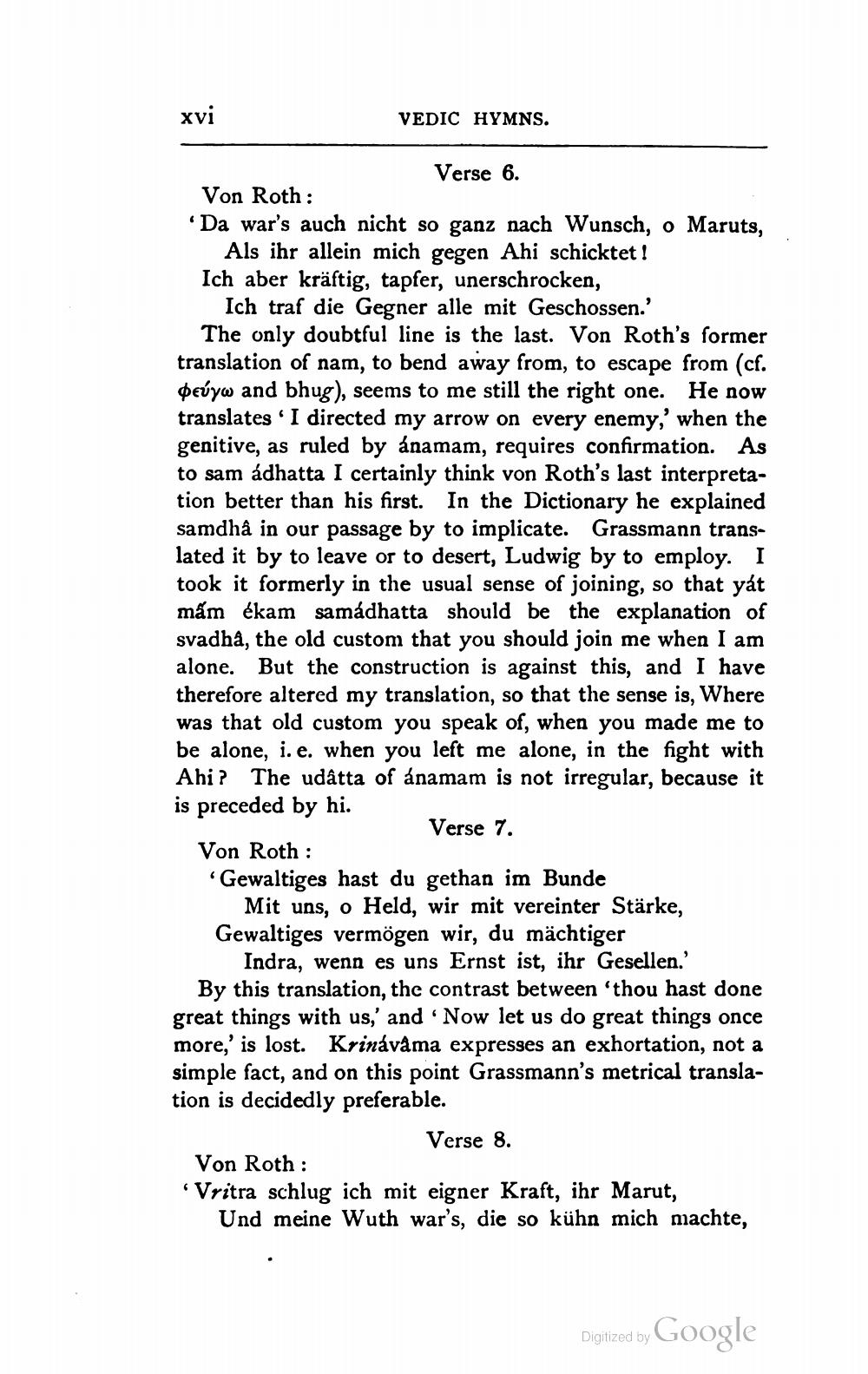________________
xvi
VEDIC HYMNS.
Verse 6. Von Roth: Da war's auch nicht so ganz nach Wunsch, o Maruts,
Als ihr allein mich gegen Ahi schicktet! Ich aber kräftig, tapfer, unerschrocken,
Ich traf die Gegner alle mit Geschossen.' The only doubtful line is the last. Von Roth's former translation of nam, to bend away from, to escape from (cf. peúyw and bhug), seems to me still the right one. He now translates I directed my arrow on every enemy,' when the genitive, as ruled by ánamam, requires confirmation. As to sam ádhatta I certainly think von Roth's last interpretation better than his first. In the Dictionary he explained samdhå in our passage by to implicate. Grassmann translated it by to leave or to desert, Ludwig by to employ. I took it formerly in the usual sense of joining, so that yát mám ékam samádhatta should be the explanation of svadhà, the old custom that you should join me when I am alone. But the construction is against this, and I have therefore altered my translation, so that the sense is, Where was that old custom you speak of, when you made me to be alone, i.e. when you left me alone, in the fight with Ahi? The udatta of anamam is not irregular, because it is preceded by hi.
Verse 7. Von Roth: Gewaltiges hast du gethan im Bunde
Mit uns, o Held, wir mit vereinter Stärke, Gewaltiges vermögen wir, du mächtiger
Indra, wenn es uns Ernst ist, ihr Gesellen.' By this translation, the contrast between thou hast done great things with us,' and Now let us do great things once more,' is lost. Krináváma expresses an exhortation, not a simple fact, and on this point Grassmann's metrical translation is decidedly preferable.
Verse 8. Von Roth: "Vritra schlug ich mit eigner Kraft, ihr Marut,
Und meine Wuth war's, die so kühn mich machte,
Digized by Google




